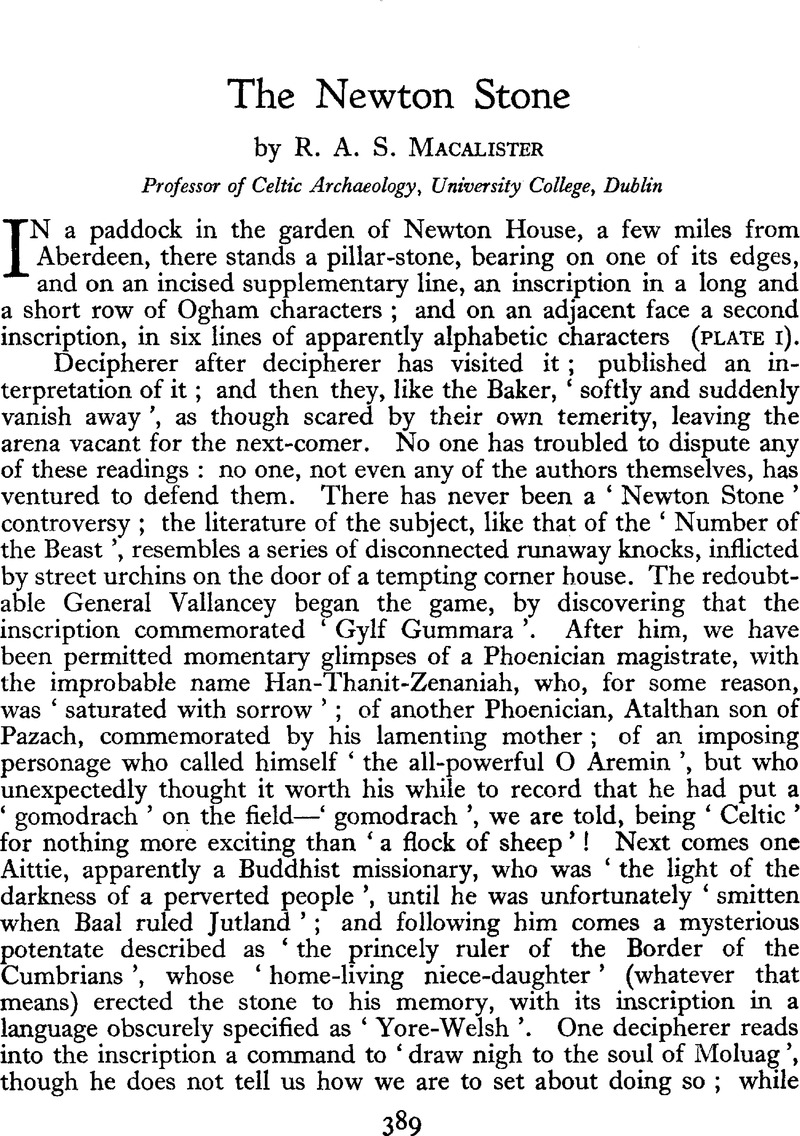No CrossRef data available.
Published online by Cambridge University Press: 02 January 2015

1 Rhys hints at it, Proceedings Soc Antiq. Scot. 1897-8, p. 363.Google Scholar
2 While giving this paper its final revision, and after I had drawn the diagram (FIG. 2), I nqticed (as explained below) that the third line of inscription B properly belongs to inscription A. It seems to be an afterthought, which will to some extent account for its conformity in outward appearance to inscription B.
3 These four letters have the appearance of having been squeezed in where we find them after the rest of the inscription (including the five letters which follow them) had been cut. Apparently the author of the alphabetic inscription returned to this difficult part of the text after the rest of his work was finished.
4 For convenience of reference I designate the unknown person responsible for the Newton inscription by the name of his Rathfarnham counterpart—thereby avoiding the harsh word ‘forger’. The transaction was a ‘folly’ rather than a fraud.
5 An easily accessible copy of Vallancey’s cut of this object will be found in Brash’s book on Ogham inscriptions, plate XLI.